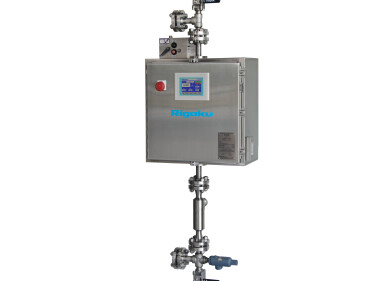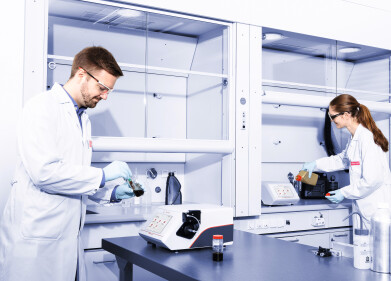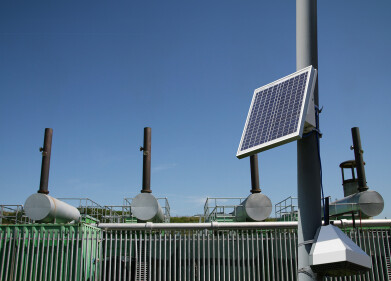Measurement and Testing
Hydrogen monitoring solution for petrochemical refineries
Jul 03 2017
Most people never give a thought to what goes into the tanks of their cars when they fill up at service stations. However, when refineries produce petrol, the product is a very specific blend of hydrocarbons. When refining petroleum products from crude oil, a key element – hydrogen – plays a key role as a feed-stock used in the various processes.
RTS Africa Engineering, based in Tshwane, specialises in innovative technologies which provide solutions to industrial challenges. Among other things, the company has been involved in supplying hydrogen production and analysis equipment for many years.
“Importantly, we also offer an inline hydrogen monitoring instrument – the HY-OPTIMA 2700 from our international California-based principal H2scan – for use specifically in the oil and gas refining industry,” explains Managing Director of RTS Africa Engineering, Ian Fraser. Common applications of the HY-OPTIMA 2700 are in refinery reforming, cracking, recycling, tail gas, fuel gas, flare gas and other multi-component process streams.
The challenge for process engineers working in oil refineries is to monitor and control the levels of hydrogen in refining processes - particularly the monitoring of hydrogen used in catalytic ‘cracking’, and also in the recycle gas stream. “Too much hydrogen is not good because you have too much energy and it starts to damage the catalyst; and too little hydrogen is bad because it slows down the process,” explains Fraser.
Currently, the traditional methods used by refineries to measure hydrogen involve the use of gas chromatographs, thermal conductivity meters and density analysers. However, traditional hydrogen analysers are costly to install and maintain. With these analysers the sampling times are long; which, in turn, bars process engineers from making decisions based on real-time information.
RTS Africa offers a purpose-designed solution to this challenge in the HY-OPTIMA 2700 process analyser. These explosion-proof instruments can be installed at strategic points in a refinery’s process streams, to provide analogue and serial outputs to communicate with an existing SCADA-type control system.
“The HY-OPTIMA 2700 is the only instrument that can withstand the hydrocarbon background typically found refineries; where gases such as hydrogen sulphide, carbon monoxide, chlorides and other corrosive gases damage most other measuring instruments,” continues Fraser.
The HY-OPTIMA 2700 uses a solid-state, non-consumable sensor that is configured to operate in process gas streams. “Importantly, the HY-OPTIMA 2700’s thin film technology makes for an instrument that is not in any way affected or cross-sensitive to other gases in the process stream. The 2700 has been designed to continuously measure only hydrogen - which it does with great and reliable accuracy,” he adds.
The HY-OPTIMA 2700 is rated ‘Zone 2’ explosion-proof. Should hydrogen get into the instrument and ignite, the 2700’s robust, cast-iron casing will safely contain the event.
With HY-OPTIMA 2700, the need for calibration is greatly reduced. “In most cases, an annual calibration using standard calibration gases is all that is needed,” Fraser explains.
Fraser points out that hydrogen is the only gas for which RTS Africa’s principal H2scan makes analysers. The company’s industry-leading hydrogen analysers and leak detectors are based on patented, solid-state core hydrogen sensor technology exclusively licensed from the U.S. Department of Energy; and are supported by 15 years of research and development, and field verification work. For the past ten years, RTS Africa has been the sole agent in Africa for H2scan.
The HY-OPTIMA 2700 is ideal for applications where real-time, hydrogen-specific measurements can enhance process plant efficiencies, diagnostics and maintenance management.
“Ultimately, with the improved measurement capability provided by this solution, refineries and other process industries will be able to produce a safer and better product, more time-and-cost-effectively,” concludes Fraser.
Digital Edition
PIN 25.5 Oct/Nov 2024
November 2024
Analytical Instrumentation - Picturing Viscosity – How Can a Viscometer or a Rheometer Benefit You? - Sustainable Grease Formulations: Evaluating Key Performance Parameters and Testing Method...
View all digital editions
Events
Dec 03 2024 Dusseldorf, Germany
Dec 08 2024 Anaheim, CA, USA
Turkey & Black Sea Oil and Gas
Dec 11 2024 Istanbul, Turkey
Dec 19 2024 Aurangabad, India
Jan 20 2025 San Diego, CA, USA



















